Diabetic Retinopathy in Andheri
Your eyes are windows to the world, but diabetes can compromise your vision. Diabetic retinopathy is a progressive eye disease caused by prolonged high blood sugar levels, commonly affecting individuals with diabetes. This condition can damage the retina the light-sensitive tissue at the back of the eye, leading to blurred vision, dark spots, or even permanent blindness if left untreated.
Managing diabetic retinopathy requires prompt attention and expert care to protect your vision. At Crystal Clear Eye Clinic in Andheri, under the leadership of Dr. Jignesh Gala, we specialize in managing diabetic eye disease using cutting-edge technology and personalized care plans.
With over 15,000 ophthalmic procedures and 3,000 laser treatments to his credit, Dr. Gala is renowned for his expertise in treating diabetic eye diseases, including diabetic retinopathy in Andheri, Mumbai. His patient-centric approach and advanced treatment techniques ensure comprehensive care tailored to your needs.
Let’s dive deeper into diabetic retinopathy, its diagnosis, and the advanced treatments available to restore and preserve vision.
What is Diabetic Retinopathy?
Diabetic retinopathy is a complication of diabetes that affects the blood vessels in the retina. Over time, high blood sugar levels can damage these vessels, leading to leakage, swelling, or abnormal growth. This can result in vision impairment or even blindness if not managed appropriately.
This condition progresses through four stages:
- Mild Non-Proliferative Retinopathy: The earliest stage where small areas of swelling (microaneurysms) occur in the retina’s blood vessels.
- Moderate Non-Proliferative Retinopathy: Blocked blood vessels restrict blood flow to the retina.
- Severe Non-Proliferative Retinopathy: More blood vessels become blocked, triggering the growth of new, abnormal vessels.
- Proliferative Retinopathy: The advanced stage, where abnormal blood vessels can leak blood into the retina, leading to severe vision loss.
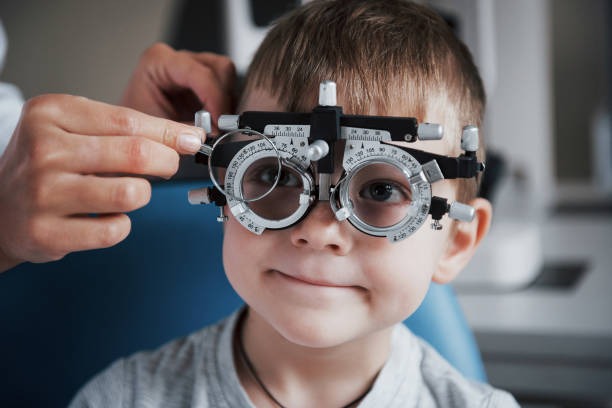
Act quickly to protect your vision and understand your risks. Consult an expert today for tailored advice. Book an appointment now!
Let’s explore the advanced tools and techniques used to diagnose this condition.
How is Diabetic Retinopathy Diagnosed?
Effective management begins with an accurate diagnosis. A comprehensive eye examination is the first step in identifying diabetic retinopathy. Dr. Jignesh Gala and his team at Crystal Clear Eye Clinic use advanced diagnostic tools to evaluate your retina’s health, including:
Dilated Eye Exam
Dr. Gala uses specialized eye drops to widen your pupils, allowing him to examine the retina for abnormalities like bleeding, swelling, or new blood vessels.

Funds photography
High-resolution images of the retina help identify subtle changes caused by diabetes.

Optical Coherence Tomography (OCT)
This imaging technique provides detailed cross-sectional images of the retina to detect swelling or fluid accumulation.
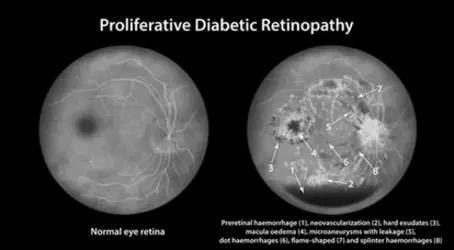
Fluorescein Angiography
A dye is injected into the bloodstream to highlight blood vessel leaks or blockages in the retina.
Why Choose Crystal Clear Eye Clinic in Andheri?
Here’s why Crystal Clear Eye Clinic is the trusted choice for treating diabetic retinopathy in Andheri:

Expertise & Experience
With extensive experience in managing diabetic eye diseases, Dr. Jignesh Gala is a highly regarded eye specialist in Andheri.

Advanced Technology
Our clinic is equipped with state-of-the-art diagnostic and surgical tools, ensuring precise and effective treatments

Comprehensive Services
From diagnosis to treatment and follow-ups, we provide end-to-end care for diabetic retinopathy and otherretinal conditions.

Patient-Centric Approach
Personalized treatment plans and compassionate care ensure patient comfort and confidence throughout the treatment process.

Proven Track Record
Dr. Jignesh Gala and his team have treated countless cases of diabetic retinopathy in Andheri, delivering excellent results with minimal complications
Your content goes here. Edit or remove this text inline or in the module Content settings. You can also style every aspect of this content in the module Design settings and even apply custom CSS to this text in the module Advanced settings.

Don’t let diabetic retinopathy compromise your vision. Reach out to an experienced specialist today to learn about your treatment options. Schedule a consultation now!
urious about how diabetic retinopathy is treated? Here’s a look at the latest options to restore and protect your vision.
Diabetic Retinopathy Treatments We Offer
At Crystal Clear Eye Clinic, we offer a range of treatments to manage diabetic retinopathy, including:
Laser Therapy
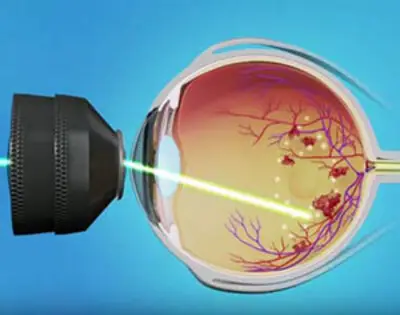
Prevents further leakage from abnormal blood vessels and slows disease progression. The procedure uses a focused beam of light to seal or shrink the leaking blood vessels, reducing the risk of retinal damage and vision loss.
Intravitreal Injections
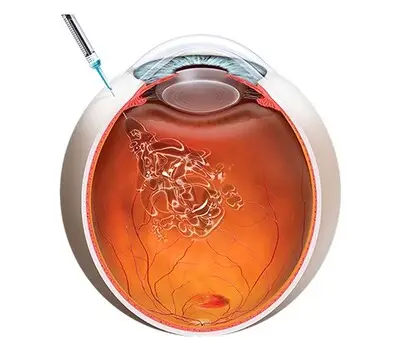
The doctor injects medications like anti-VEGF agents into the eye to reduce swelling and inhibit abnormal vessel growth. These injections help stabilize or improve vision by blocking the signals that stimulate new blood vessel formation.
Vitrectomy Surgery
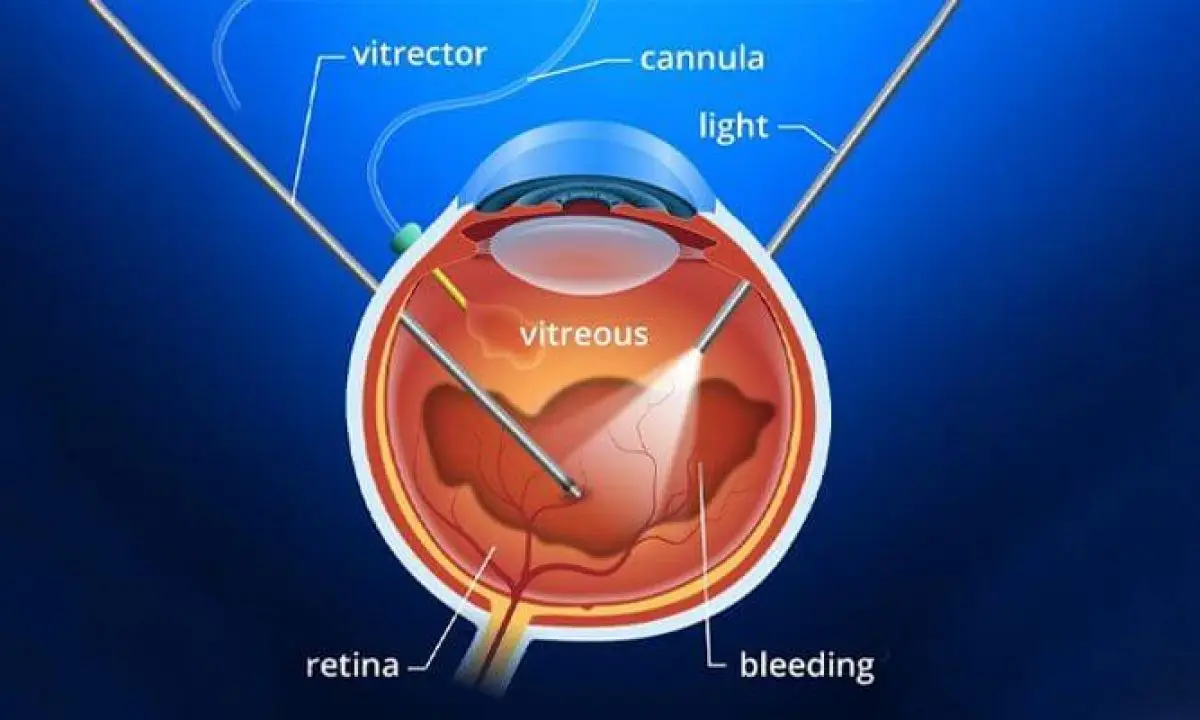
Removes blood or scar tissue affecting the retina, restoring vision. This procedure is particularly effective for patients with advanced proliferative retinopathy or vitreous haemorrhage, ensuring better retinal function.
Each treatment plan is customized after a thorough assessment by Dr. Jignesh Gala and his team to ensure the best possible results.
Can diabetic retinopathy be prevented? Let’s discuss the preventative measures next.
Preventing Diabetic Retinopathy
Prevention is better than cure. Managing your diabetes plays a crucial role in preventing diabetic retinopathy. Here are steps to safeguard your vision:
- Maintain Optimal Blood Sugar Levels: Strict control of blood glucose levels helps prevent damage to retinal blood vessels.
- Monitor Blood Pressure: High blood pressure increases the risk of retinopathy; keeping it under control is crucial.
- Regular Eye Exams: Annual dilated eye exams can detect early signs of retinopathy, allowing timely intervention.
- Adopt a Healthy Diet: To support eye health, eat a balanced diet rich in antioxidants, vitamins, and omega-3 fatty acids.
- Exercise Regularly: Physical activity improves overall health and helps manage diabetes effectively.
- Avoid Smoking: Smoking can exacerbate vascular damage and increase the risk ofdiabetic eye disease.
- Follow Medical Advice: Adhere to your doctor’s recommendations, including medications for diabetes, blood pressure, or cholesterol.
Taking these proactive measures can reduce the risk of developing severe complications.

Don’t let diabetes compromise your sight. Consult a professional for a comprehensive eye exam.Schedule an appointment now!
FAQs
What causes diabetic retinopathy?
Diabetic retinopathy occurs due to prolonged high blood sugar levels that damage the retina’s blood vessels.
What are the early signs of diabetic retinopathy?
Diabetic retinopathy symptoms include blurred vision, floaters, dark spots, or difficulty seeing at night.
How is diabetic retinopathy diagnosed?
It is diagnosed through comprehensive eye exams, including tests like OCT and fluorescein angiography.
Can diabetic retinopathy cause blindness?
Untreated diabetic retinopathy can lead to vision loss and blindness, especially in its advanced stages.
Is diabetic retinopathy reversible?
While the damage from diabetic retinopathy cannot be reversed, timely treatment can prevent further progression.
Are the treatments for diabetic retinopathy painful?
Most treatments, such as laser therapy or injections, are minimally invasive and cause little to no discomfort.
How often should I have my eyes checked if I have diabetes?
Annual eye exams are recommended for people with diabetes. Those with existing retinopathy may need more frequent check-ups.
What is the recovery time after diabetic retinopathy treatment?
Recovery time varies depending on the treatment but is generally quick, with minimal downtime.
Disclaimer: This page is for informational purposes and not for promotional use.




